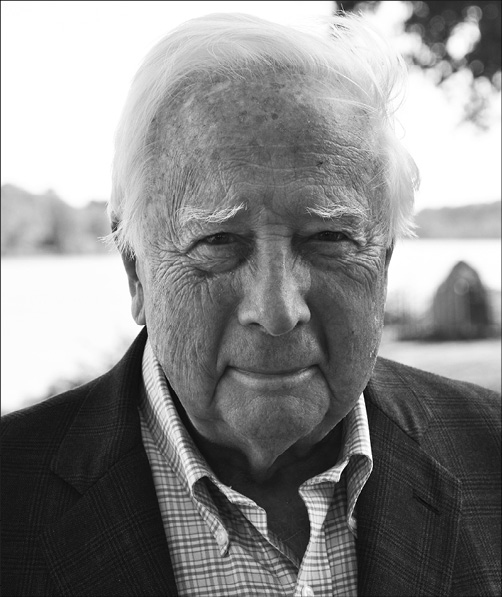2 DAVID McCULLOUGH on John Adams
“There’s present-day time and then there’s the time of history. And the best and most effective people in public life, without exception, have been the people who had a profound and very often lifelong interest in history.”
BOOKS DISCUSSED:
John Adams (Simon & Schuster, 2001)
Truman (Simon & Schuster, 1992)
David McCullough has devoted his life to telling the American story in eloquent and riveting prose. His books have won Pulitzer Prizes and regularly achieve New York Times number-one-best seller status, and he has garnered virtually every other honor possible for an author, including the National Humanities Medal, the Presidential Medal of Freedom, and more than fifty honorary degrees from the country’s leading universities.
David’s personal recounting of the stories and the individuals he has written about shows a love and enthusiasm for American history that is infectious. Listening to him talk about American history is even more compelling—if that is possible—than reading his words.
In this interview, David and I discuss John Adams, probably the least honored of the Founding Fathers until David’s book on him was published in 2001. That book, which won a Pulitzer Prize, reopened the eyes of Americans to our first vice president and second president, an individual who was perhaps most responsible for the resolution in the Second Continental Congress in 1776 that called for the dissolution of ties with England, leading to the American Revolution.
I have known and greatly admired David for a good many years and have interviewed him on numerous occasions. He really needs little prompting from an interviewer, for he is the consummate storyteller, raconteur, and spokesman for America’s history.
If there is today a living Mr. American History and Mr. American Spirit, it is David McCullough, not just because of what he has written and said or what he represents but also because of his great many human qualities.
One of these was evident to me at a recent award ceremony where David was being honored. Rather than just accept the award for his many accomplishments, he talked instead about how his wife, Rosalee McCullough, was his indispensable partner. She has read out loud to him every word he has written and is his best editor and critic. He actually seemed to be giving her the award—and it was clear from his talk how vital she was to his work. Few others would have shared the credit so convincingly and so lovingly.
In the interview, David points out that he originally intended to write a book about the relationship between Thomas Jefferson and John Adams. But in doing the early research, he realized how compelling (and relatively unknown) Adams was, and how a book on him—there had been few—would enable Americans to realize that the second president, while not as celebrated or as glamorous as the first and third, deserved real praise for his unheralded intellect, principles, scholarship, passion, and patriotism.
McCullough’s work did the trick. His book is in its forty-eighth printing and helped to move Congress to correct a major lapse in Washington. There is, after all these years, authorization for a monument to Adams in Washington, though no funding at this point.
David also won a Pulitzer Prize for his book on Harry Truman, and in the interview noted the similarities between his subjects: both men held firm to their core principles, were relatively simple in their interests, were not popular while in office, and reemerged in public acclaim only many years after they left office.
After listening to David McCullough, it would be difficult to not really like and admire both Adams and Truman. But it would also be difficult to not really like and admire McCullough himself, in part for his writing skills and in part for his peerless description of what makes America so unique.

